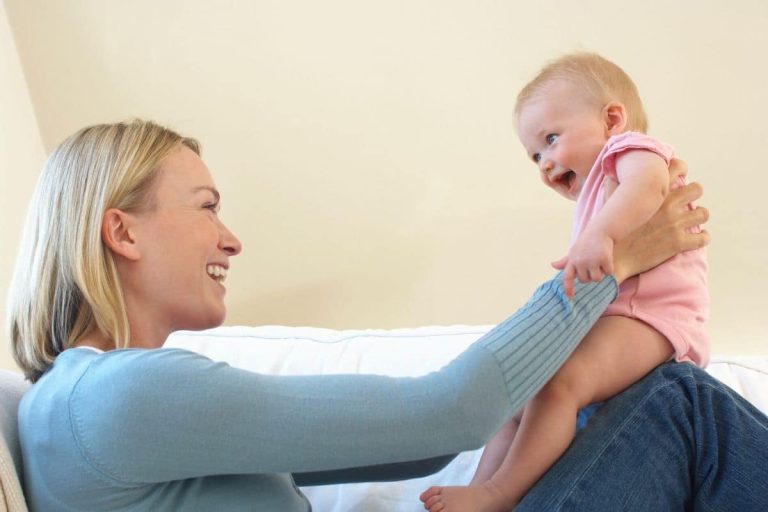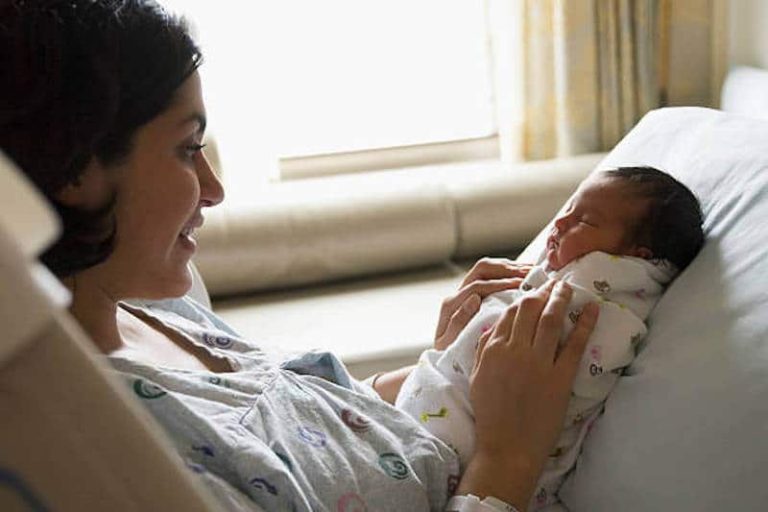Caring For Your Mental Health As A New Parent: Top Tips
Being a new parent can also be overwhelming and stressful, with sleepless nights, constant demands and unexpected challenges. It is important to prioritize your mental health during this time of transition, not only for your own well-being but also for the health of your baby and family.
Taking care of yourself mentally is just as important as taking care of yourself physically. Just like you would seek medical attention for a physical injury or illness, it is essential to pay attention to your mental health needs as well.
Note: This post may contain affiliate links, which means if you buy from my link I might make a small commission. This does not affect the price you pay. See the full affiliate disclosure here.
In this article, we will share top tips for caring for your mental health as a new parent so that you can enjoy this precious time with peace of mind and confidence. Remember: you cannot pour from an empty cup; taking care of yourself allows you to take better care of those around you.

Practice Self-Care
Take some time for yourself and indulge in activities that make you feel happy and relaxed, so you can be the best version of yourself for your little one. Taking care of a newborn can be overwhelming, and it’s easy to forget about our own needs.
But practicing self-care is crucial when it comes to maintaining good mental health as a new parent. Engage in mindful activities like yoga or meditation, or simply take a walk outside and enjoy the fresh air. These simple practices will help calm your mind and allow you to recharge.
If you’re feeling overwhelmed or struggling with postpartum depression, don’t hesitate to seek professional help. It’s common for new parents to experience anxiety or mood disorders after having a baby, but there are resources available to support you through this challenging time.
Consider talking with a counselor or therapist who specializes in postpartum mental health, or reach out to local support groups where you can connect with other new parents who are going through similar experiences. Remember that caring for your own mental health is just as important as taking care of your baby’s needs – both will contribute to creating a loving and healthy home environment for your family.
Seek Support
Getting help from others can be crucial for maintaining a positive mindset as a new parent. It’s easy to feel overwhelmed and alone when you’re taking care of a newborn, but remember that you don’t have to do it all by yourself.
Seeking professional help is always an option if you’re struggling with your mental health. A therapist or counselor can provide guidance and support as you navigate the challenges of parenthood.
In addition to seeking professional help, consider joining support groups for new parents. These groups can provide a sense of community and understanding that can be difficult to find elsewhere. You’ll be able to connect with other parents who are going through similar experiences, share advice and tips, and form lasting friendships.
Remember, there’s no shame in asking for help – in fact, reaching out for support shows strength and resilience in the face of adversity.
Set Realistic Expectations
As a new parent, it’s important to set realistic expectations for yourself. Accept that things will change and try not to compare yourself to others.
Remember to celebrate small wins along the way as you navigate this new journey. By doing so, you can focus on your own progress and growth without feeling overwhelmed or discouraged by unrealistic expectations or comparisons.

Accept That Things Will Change
You’re in for a wild ride as your life takes on a new shape, so it’s important to embrace the changes that come with becoming a parent. Accepting that things will change is crucial to maintaining good mental health as you navigate the early stages of parenthood.
You may find yourself struggling to keep up with the demands of caring for a newborn while also tending to your own needs and responsibilities. Here are some tips to help you adjust and cope:
- Be kind to yourself: It’s okay if you can’t do everything perfectly right away. Remember that you’re learning how to be a parent just as much as your baby is learning how to live in this world.
- Prioritize self-care: Taking care of yourself is not selfish – it’s necessary for your mental health and well-being. Make time for activities that bring you joy and relaxation, even if it means asking for help with childcare.
- Communicate with your partner or support system: Let them know how you’re feeling and what kind of help or support you need from them.
- Practice flexibility: Adjusting priorities may mean letting go of some things temporarily, like household chores or work projects, in order to focus on taking care of yourself and your baby.
Remember, adjusting to parenthood takes time and patience. Be gentle with yourself during this transition period and seek out support when needed – whether from friends, family members, or healthcare professionals who specialize in maternal mental health.
Don’t Compare Yourself to Others
Don’t worry about how other parents are doing, focus on your own journey and remember that everyone’s experience is unique. When you become a new parent, it is easy to fall into the trap of comparing yourself to other parents.
You may see pictures on social media of happy families with perfectly clean homes and well-behaved children, and wonder why your experience doesn’t match up. But the truth is that every family has their own struggles and challenges.
Avoiding comparison is key to building confidence in your abilities as a parent. Instead of looking at what others are doing, focus on your own journey. Take time to reflect on your strengths as a parent and celebrate small victories along the way.
Remember that there is no one right way to be a parent – what works for one family may not work for another. Trust yourself and know that you are doing the best you can for your child.
Celebrate Small Wins
Now that you understand the importance of not comparing yourself to others, it’s time to focus on celebrating your own successes.
As a new parent, it’s easy to get caught up in the daily struggles and forget about the small wins. However, acknowledging and celebrating these moments can have a significant impact on your mental health.
Mindful reflection is key when it comes to celebrating small wins. Take a moment at the end of each day to reflect on what went well and what you accomplished, no matter how small.
You can also start gratitude journaling as a way to document these wins and remind yourself of all the good things that are happening in your life as a new parent. By focusing on the positives, you’ll be able to approach each day with a more positive mindset and feel more fulfilled overall.

Take Breaks
Sometimes it’s good to just step away and give yourself a breather. As a new parent, finding time for rest and relaxation can be challenging, but taking breaks is crucial for your mental health.
Here are some tips on how to take effective breaks:
- Take a walk outside: Fresh air and exercise can do wonders for your mood.
- Connect with friends or family: Surrounding yourself with positive people can help alleviate stress.
- Practice self-care: Indulge in activities that make you feel good, like taking a long bath or reading a book.
Remember that taking breaks doesn’t mean neglecting your responsibilities as a parent. It means giving yourself the opportunity to recharge so you can be present and engaged when you return to caring for your little one.
Prioritizing self-care will ultimately benefit both you and your child in the long run.
Communicate with Your Partner
If you want to build a strong foundation for your relationship with your partner as new parents, it’s important to communicate openly and honestly about your feelings and needs.
Becoming a parent is an incredible journey, but it can also be an incredibly daunting one. With all the changes happening in your life, it can be easy to let communication take a back seat. However, effective communication is crucial for maintaining a healthy relationship with your partner.
One of the most important aspects of communication is navigating conflict. As new parents, you’re bound to have disagreements from time to time. It’s essential that you learn how to resolve these conflicts in a healthy and productive way.
This means taking the time to listen actively and empathetically when discussing issues, being open-minded, and finding solutions that work for both of you. Remembering the importance of communication will help you build resilience in times of strain, ultimately leading to a stronger partnership as you navigate parenthood together.
Conclusion
In conclusion, taking care of your mental health as a new parent is crucial for both you and your baby’s well-being. It’s important to practice self-care by engaging in activities that make you feel good, such as exercising or treating yourself to something special.
Seeking support from family, friends, or a professional can also be helpful in managing stress and anxiety. Setting realistic expectations for yourself and your baby is another key aspect of caring for your mental health. Remember that every child develops at their own pace and it’s okay if things don’t go according to plan.
Taking breaks when needed and communicating openly with your partner about how you’re feeling can also relieve some of the pressure that comes with being a new parent. Overall, prioritizing your mental health as a new parent may require some effort but it will ultimately benefit both you and your little one in the long run.
Don’t hesitate to reach out for help if you need it – taking care of yourself is just as important as taking care of your baby.






